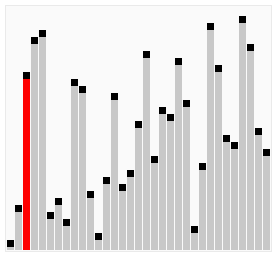Greedy Algorithms are a class of optimization algorithms that make locally optimal choices at each step of a problem to arrive at a globally optimal solution. The algorithm makes a series of choices that are locally optimal and hopes that these choices will lead to the globally optimal solution. The greedy algorithm does not consider the consequences of its choices beyond the current step. It makes the best choice at each step without worrying about how it affects future steps.
Let's take a real-life example of the change-making problem to understand the working of the greedy algorithm. Suppose you have to give change of 75 cents using coins of 1, 5, 10, and 25 cents. The goal is to use the minimum number of coins to give the change.


